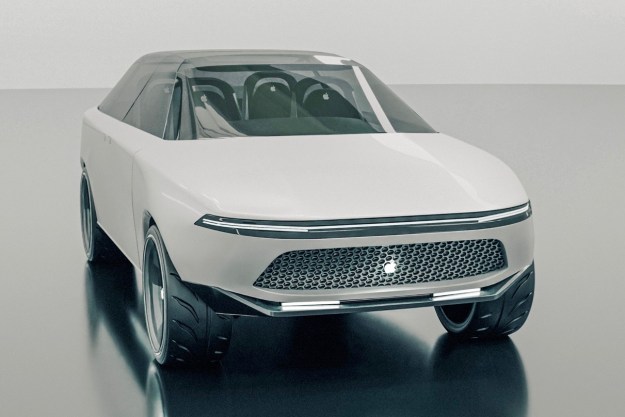You’re right, that’s not a normal thing to do, and it confused the hell out of people that saw the car drive by. While some passed it off as a trial run for a self-driving car, Arlington’s more eagle-eyed observers noticed limbs protruding from the seat, a sight that prompted one man to knock on the window and ask, “Who are you? What are you doing?”
The man dressed as a car seat declined to answer, and simply drove off. A few days later, we learned that the stunt was a data-gathering exercise by researchers at Virginia Tech Transportation Institute eager to learn more about people’s reactions to driverless vehicles. It turns out Ford was involved, too.
The American car giant on Wednesday, September 13 posted a video showing more footage of its “driverless” vehicle, which also shows the human driver in his car-seat garb.
Offering some more details about the experiment, John Shutko, one of Ford’s self-driving specialists, explained in a blog post that while the firm is keen to learn more about human responses to self-driving cars, it also want to look at how such vehicles might be able to communicate their intentions to pedestrians and cyclists, thereby providing reassurance.
Shutko points out how “anyone who has crossed a busy street likely knows the informal language between pedestrians and drivers. A driver might wave her hand to indicate to the pedestrian it’s OK to cross, or a pedestrian could throw up his hand like a stop sign to signal he plans to cross first.”
He points out that when autonomous cars become commonplace, such behavior will disappear. With that in mind, Ford is working on developing a standard way for driverless vehicles to communicate their intentions to nearby pedestrians and cyclists.
Shutko said that its unique “seat suit” enabled it to collect “real-world reactions to an autonomous vehicle driving on miles of public roads in northern Virginia, without actually using an autonomous vehicle.”
Flashing light bar
The car used a flashing light bar at the top of the windshield. “The signal slowly pulses a white light back and forth if it is yielding, blinks rapidly if it is about to accelerate from a stop, or remains completely solid if it is in active self-driving mode, meaning it is simply driving along the road like any other vehicle,” Ford’s driverless-car expert said, adding that the company is currently researching solutions for the blind and visually impaired.
Of course, at the present time, few people will have any idea what the various light signals mean, but Ford hopes that over time they’ll become commonly understood by road users around the world.
“Our light signals still need to undergo a significant amount of research,” Shutko said, “but we believe an aligned industry and development of a global standard is critical to support eventual deployment of self-driving vehicles.”
Ford recently doubled its Silicon Valley team to further its autonomous-vehicle research, and is also working more closely with at least four startups to develop related technology. It’s also aiming to launch a fully autonomous vehicle for ridesharing in 2021.
Editors' Recommendations
- Dubai Police to deploy driverless patrol cars with AI smarts
- Cruise autonomous vehicle drives over woman just after she was hit by another car
- An autonomous car in San Francisco got stuck in wet concrete
- Volkswagen is launching its own self-driving car testing program in the U.S.
- Autonomous cars confused by San Francisco’s fog


